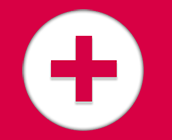
Registered Nurse Career
Registered Nurses are often considered the backbone of the healthcare industry. By assisting doctors and healthcare specialists, Registered Nurses ensure the timely and effective delivery of patient care. Many Registered Nurses work in hospitals, nursing homes and doctor’s offices. Others work in home healthcare or government facilities such as schools and correctional facilities.
What Does a Registered Nurse Do?
Registered Nurses are responsible for a wide range of duties, including:
- Coordination and delivery of patient care
- Administration of medicines and medical treatments
- Patient education and support
- Observation and recording of patient vitals and overall state
- Assistance in diagnostic testing
- Supervision of Licensed Practical Nurses, nursing assistants and home health aides
In addition to executing these crucial tasks, Registered Nurses may also focus on working within a specific healthcare discipline, such as cardiovascular, critical care or rehabilitation. Registered Nurses who focus in one of these fields may be responsible for additional duties and require specialized training and education.
What Certifications or Degrees Do I Need to Become a Registered Nurse?
There are a few educational and training pathways an individual can take to become a Registered Nurse, including:
- Bachelor’s degree programs: Many employers seek Registered Nursing candidates with a four-year degree from an accredited academic institution. Registered Nurses with bachelor’s degrees may earn more than those with associates degrees, or may have additional opportunities for career advancement.
- Associate’s degree programs: A two-year associate’s degree from an accredited academic institution qualifies an individual for employment within the Registered Nursing field. An ASN can be obtained in 21 to 24 months, making it the preferred educational path for Registered Nurses looking to enter the workforce quickly.
- Diploma from an approved nursing program: Depending on the state, an individual may seek employment as a Registered Nurse after obtaining a diploma from an approved nursing program. Lasting between one and three years, nursing diploma programs are offered primarily in a medical setting, allowing students to gain hands-on knowledge and skills.
Regardless of education, Registered Nurses must pass national examination and become licensed in their state to be eligible for employment.
What Is the Employment Outlook for a Registered Nurse?
According to the United States Department of Labor Bureau of Labor Statistics, the median income for Registered Nurses was $68,450 in May 2016.
As of 2014, an estimated 2,751,000 Registered Nurses were employed throughout the United States. That number is expected to increase, as a projected 439,300 Registered Nursing positions will become available between 2014 and 2024.
Become a Registered Nurse. Apply Today.
As a Registered Nurse, you’ll play a key role in the delivery of patient care. Apply Today to start your path toward a rewarding career as a Registered Nurse.
More on becoming a registered nurse

